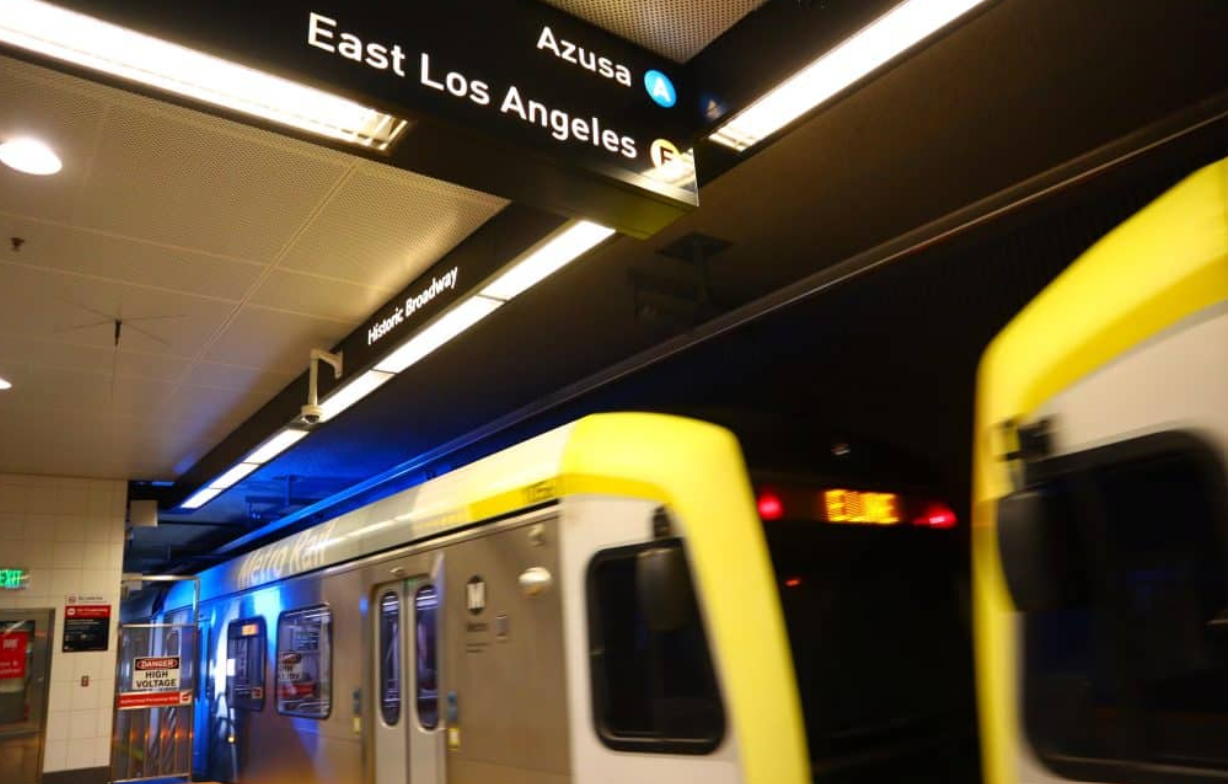Facial recognition coming to LA transit after passenger fatally stabbed
Transit officials in Los Angeles have declared a public safety emergency over the stabbing of a 66-year-old woman in the city’s Metro transit system, and are planning to deploy facial recognition tools to help identify repeat offenders and deter violent crime, according to reports from the Los Angeles Times and Los Angeles Daily News.
Beatings, stabbings and other violent incidents have been rising on L.A.’s public buses and trains, including four attacks in April. The perpetrator of the stabbing attack that killed Mirna Soza Arauz had a prior ban from the transit system for violent altercations. But Metro says its officers had no way of knowing that a dangerous individual was riding the train. Had facial recognition systems been in place, they might have made the match.
Calling Soza Arauz’s death “a shot across the bow,” the Metro board has given unanimous support to a motion asking the CEO to report back in two months on the feasibility of facial recognition deployments on buses and trains.
The situation is being framed in the direst of terms by those who initiated the request. “Our agency has grappled with a very real and unacceptable level of violence, illicit drug use sales and overdoses, and a blatant disregard for the law, our code of conduct and, quite frankly, basic human decency,” says board member and Los Angeles County Supervisor Kathryn Barger. “Until we completely reverse security reality on our system, I’m concerned that we will never come back.”
FRT payments common but security use cases come with privacy concerns
Facial recognition and other biometric systems have been trialed or installed in transit systems around the world, most often for payments. Deployments in Moscow, Mumbai, Shanghai and Indonesia have differed in scale, modality and approach. For security purposes, Bogota deployed facial recognition software from Corsight AI for real-time surveillance of the city’s TransMilenio system, which resulted in six arrests. And Sao Paolo outfitted its 3-Red subway line with face biometrics and object detection systems that trigger alerts for security operators.
One place that transit riders will not be able to use facial recognition to pay for their rides any time soon is New York City. Gothamist reports on a new law that requires the Metropolitan Transportation Authority to “not use, or arrange for the use, of biometric identifying technology, including but not limited to facial recognition technology, to enforce rules relating to the payment of fares.”
Cautious approach to facial recognition depends on perspective
Academia has typically recommended a cautious approach to using facial recognition for law enforcement in public spaces – although that caution takes different forms and focuses. An article in the Cambridge Law Journal from December 2023 advocates for an incremental approach to regulating the technology. Per the abstract, “by analyzing legislative instruments, judicial decisions, deployment practices of UK law enforcement authorities, various procedural and policy documents, as well as available safeguards, the article suggests incremental adjustments to the existing legal framework instead of sweeping regulatory change.”
Other voices in the debate, however, argue that advances in facial recognition technology are outpacing laws and regulations, and that a swift, comprehensive response should be the government’s primary concern. In a new report entitled “Facial Recognition Technology: Current Capabilities, Future Prospects, and Governance,” the National Academies of Sciences, Engineering and Medicine “recommends consideration of federal legislation and an executive order” on facial recognition tools.
“An outright ban on all FRT under any condition is not practically achievable, may not necessarily be desirable to all, and is in any event an implausible policy, but restrictions or other regulations are appropriate for particular use cases and contexts,” says the report. “In light of the fact that FRT has the potential for mass surveillance of the population, courts and legislatures will need to consider the implications for constitutional protections related to surveillance, such as due process and search and seizure thresholds and free speech and assembly rights.”
Meanwhile, the U.S. Commission on Civil Rights has launched an investigation into facial recognition and its use by American federal agencies.
Source: Biometric Update
Become a Patron!
Or support us at SubscribeStar
Donate cryptocurrency HERE
Subscribe to Activist Post for truth, peace, and freedom news. Follow us on SoMee, Telegram, HIVE, Minds, MeWe, Twitter – X, Gab, and What Really Happened.
Provide, Protect and Profit from what’s coming! Get a free issue of Counter Markets today.



